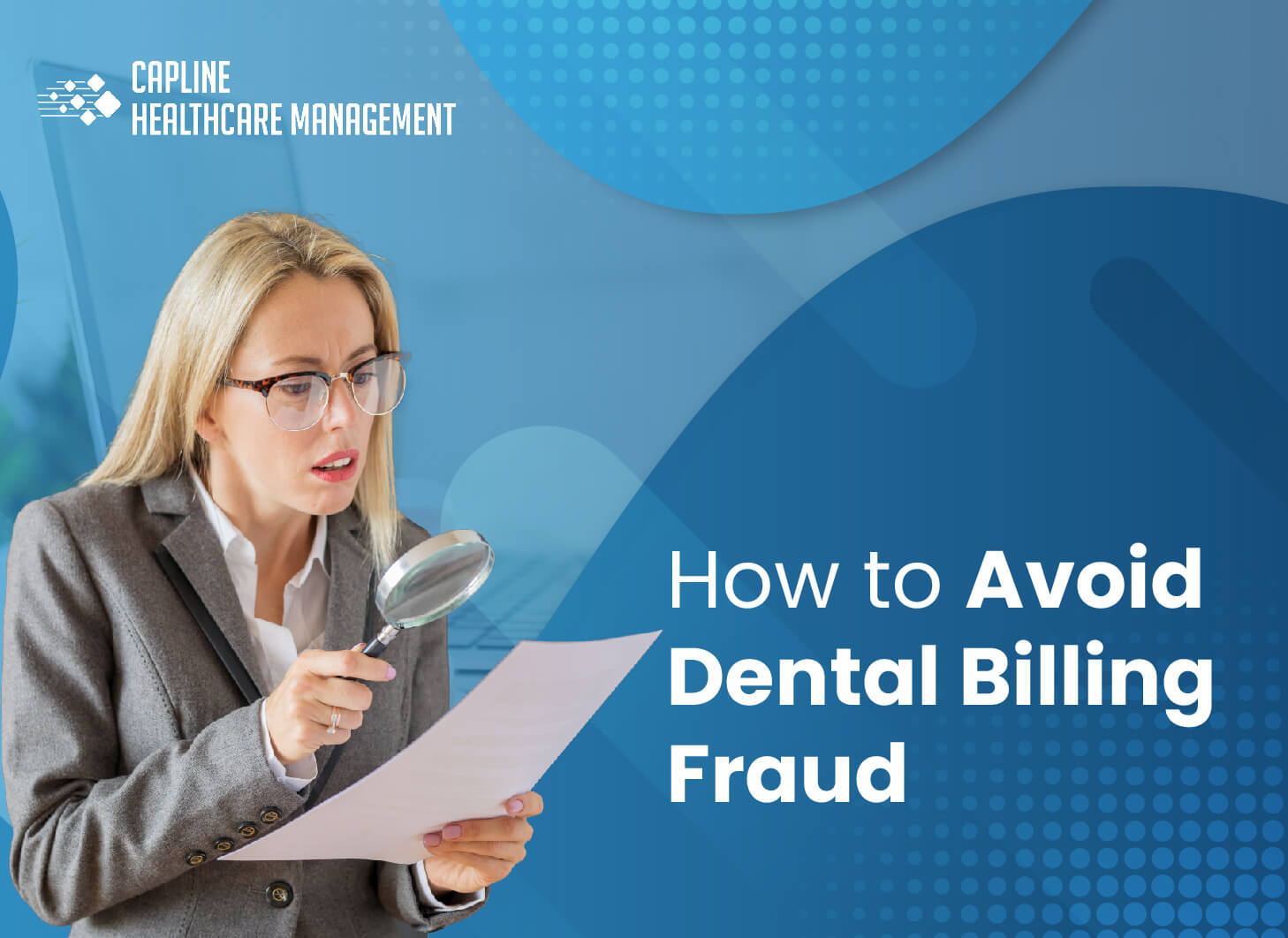How to Avoid Dental Billing Fraud: A Comprehensive Guide
Dental billing fraud refers to crimes where an individual receives insurance money for filing a false claim or inflating a claim. They can harm everyone in the dental industry, as they drive up the cost of coverage for patients and employers, and can result in fines and loss of professional licenses.
Therefore, it is important for dental practices to be aware of the compliance requirements for dental billing and coding, and to follow them strictly. Compliance means adhering to the rules and regulations that govern the dental profession, such as the CDT Code, HIPAA, OSHA, and state laws. Compliance can help dental practices avoid penalties, maintain good relationships with insurers, and maximize revenue.
Types of Dental Billing Frauds
There are several types of dental billing fraud that providers should be aware of:
- False Claims: This is when a provider submits a claim for services that were not provided to increase claim reimbursement.
- Upcoding: This is when a provider bills for a higher level of service than what was performed. For example, billing for a comprehensive exam when only a limited exam was done.
- Unbundling: This is when a provider bills separately for services that are normally bundled together. For example, billing separately for each surface of a tooth when doing a filling.
- Phantom Billing: This is when a provider bills insurance companies or patients for services that were never performed. For example, billing for an extraction when only an exam was done.
- Kickbacks: This is when a provider receives money or other incentives in exchange for referrals or services.
Compliance Guidelines for Dental Practices
One way to make sure that you do not commit any kind of dental billing fraud is by ensuring compliance with dental billing and coding requirements. It is advised that dental practices should follow these guidelines:
- CDT Code: The CDT Code is a set of standardized codes that describe dental procedures and treatments. Using accurate and up-to-date CDT codes can help you avoid errors, denials, audits, and fraud allegations.
- HIPAA: The Health Insurance Portability and Accountability Act (HIPAA) sets national standards for protecting the privacy and security of personal health information (PHI).
- OSHA: The Occupational Safety and Health Administration (OSHA) sets standards for workplace safety and health.
State Laws: Each state has its laws regarding dental practice management. Dental practices must comply with state laws by obtaining the necessary licenses and permits, maintaining accurate records and documentation, etc.
Tips on How to Avoid Dental Billing Fraud
To avoid dental billing fraud and ensure compliance in your dental practice, you can follow these tips:
- Make sure you use the correct CDT codes for all dental services you provide. Check the latest version of the CDT Code book or online resources, such as the ADA (PDF), to verify the codes and their descriptions.
- Use reputable dental billing software that is up-to-date with the latest coding and billing regulations to avoid dental billing fraud.
- Keep detailed records of all patient visits, treatments, and billing information.
Review your billing statements regularly to ensure that they are accurate and complete so that any kind of dental billing fraud can be avoided. - Consider hiring an independent auditor to review your billing practices and identify any potential issues that can lead to potential dental billing fraud.
- Educate your staff on the compliance requirements for dental billing and coding, and make sure they follow them consistently. Create a culture of compliance in your practice, where everyone is accountable and responsible.
Dental billing fraud can lead to higher costs for patients and employers, legal consequences for providers, and loss of trust in the healthcare system. Therefore, it is important for dental practices to be aware of the compliance requirements for dental billing and coding, and to follow them strictly. One way to comply with this is by outsourcing dental billing to experts and using their knowledge, skills, and technology to ensure accurate and compliant dental billing.
Bottomline:
Capline Healthcare Management provides a dependable solution for preventing dental billing fraud. Their specialized knowledge of healthcare billing ensures accurate claim submissions and regulatory compliance, lowering the risk of fraudulent activity. Capline uses strict security measures and trained professionals to oversee billing processes, protecting against potential fraud. By entrusting your dental billing to Capline, you can improve transparency, reduce errors, and maintain the financial integrity of your practice.



